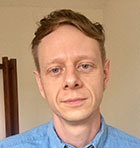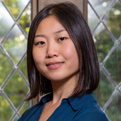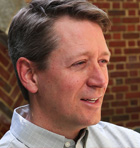
Working the Humanities
Humanities at UR Events

What Forms the Self?
This year, Humanities at UR is exploring the theme of What Forms the Self? Anticipating big things on the horizon, in 2023-24, the humanities theme is a question: a question we think gets asked all across UR’s curriculum, a question that is at the very core of what liberal arts education broadly, and the humanities specifically, mean in today’s world. The question is, at least, double. In one version, it explores the hypothesis that different forms of selfhood (or personhood, citizenship, subjectivity) exist and have existed in different historical moments and geopolitical contexts. In the other, we turn our attention to how our selves come into being: what shapes us? What sustains us? What might change us?
An Examined Life
Living an examined life enables one to collaborate meaningfully with others and is a prerequisite to living courageously, selflessly, and in the service of the public good. At Richmond, the humanities are focused on developing the intellectual resources to put an examined life into practice.
Our scholarly community is comprised of over 100 faculty members in 15 departments and programs, all of whom are experts in their chosen field, as well as dedicated teachers and mentors.
The Humanities in Arts & Sciences Advisory Board guides humanities-related activities across the School and our campus.
Faculty Accomplishments

Nathan Snaza, assistant professor of English, published Tendings: Feminist Esoterisms and the Abolition of Man by Duke University Press.
View Bio
Nathan Snaza, assistant professor of English, published "Why This? Affective Pedagogy in the Wake" in The Affect Theory Reader 2: Worldings, Tensions, Futures.
View Bio
Yucong Jiang, assistant professor of computer science, has been awarded a $75K Digital Humanities Advancement Grant from the National Endowment for the Humanities for her project titled “Prototyping a Digital Tool for Computer-Assisted Annotation and Analysis of Music Performance.” Learn more.
View BioA set of kindred traditions that examine human life in all of its messy, magnificent, and surprising forms.
Co-Creating Knowledge
Humanities faculty and students work closely together in the classroom and through student-designed, faculty-mentored research. They ask hard questions of each other, resulting in the co-creation of new knowledge. After experiencing that collaborative environment, students enter the world prepared to make a contribution in the workplace, or to society as a whole.
From the Classroom to the Real World
There is a seamless transition between the abstract thinking done in the classroom and the real-life demands of the job market. Humanities students can analyze problems, develop solutions, and communicate effectively with others, while exhibiting empathy, adaptability, and independent thinking.
As a result, they enter the world and their chosen profession with a formidable set of skills and capabilities, and mindset of curiosity and inquiry. But humanities students do not merely bring training and a set of skills to their profession; they bring the full weight of their humanity.
of employers agree students should have experiences that teach them to solve problems with people who have differing viewpoints. Source: AAC&U
of employers agree college students should acquire civic knowledge and judgement essential for contributing to their community. Source: AAC&U
of employers that agree a candidate's ability to think critically, communicate clearly, and solve complex problems is more important than his or her major. Source: AAC&U
Humanities in Practice
The most pressing global problems do not have simple, black and white solutions. The humanities prepare students to confront today's challenges with flexible habits of mind, a strong moral compass, and the ability to critically examine complicated and rapidly changing social realties. They are equipped to effectively negotiate a globally integrated world, as well as shape a life that is rich with meaning because they recognize the full range of human value and potential.
Additional partners in humanities practice include University Museums, the Modlin Center for the Arts, the Center for Civic Engagement, the Digital Scholarship Lab, Boatwright Memorial Library, and UR Downtown.




